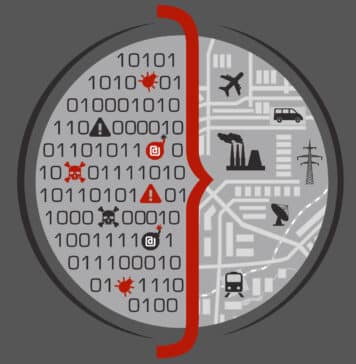Depending on who you speak to, 5G is either humankind’s greatest imminent blessing or its greatest imminent curse. Still in its infancy, and not...
Because it demands so much manpower, cybersecurity has already benefited from AI and automation to improve threat prevention, detection and response. Preventing spam and identifying malware are already common examples. However, AI is also being used – and will be used more and more – by cybercriminals to circumvent cyberdefenses and bypass security algorithms. AI-driven cyberattacks have the potential to be faster, wider spread and less costly to implement. They can be scaled up in ways that have not been possible in even the most well-coordinated hacking campaigns. These attacks evolve in real time, achieving high impact rates.
Where AI, robots, IoT and the so-called Fourth Industrial Revolution are taking us, and how we should prepare for it are some of the hottest topics being discussed today. Perhaps the most striking thing about these discussions is how different people’s conclusions are. Some picture a utopia where machines do all work, where all people receive a universal basic income from the revenues machines generate and where, being freed from a need to work for wages, all people devote their time to altruism, art and culture. Others picture a dystopia where a tiny elite class uses their control of AI to horde all the world’s wealth and trap everyone else in inescapable poverty. Others take a broad view that sees minimal disruption beyond adopting new workplace paradigms.
In my previous post I argued that if Canada wants to succeed with its AI-focused innovation agenda, it should also be at the forefront...
Read Part 1: Why
Part 2: How
One day, sitting in the shed he called home, the journalist, Oobah Butler, had an idea: he would turn...
While I add a similar disclaimer to all of my public content, it's particularly important in this case to emphasize that the convictions I've...
In the recent report by IHS Markit - "The 5G Economy - How 5G will contribute to the global economy" - researchers claimed that...
In 2013, George F. Young and colleagues completed a fascinating study into the science behind starling murmurations. These breathtaking displays of thousands – sometimes...
Recent events have confirmed that the cyber realm can be used to disrupt democracies as surely as it can destabilize dictatorships. Weaponization of information and malicious dissemination through social media pushes citizens into polarized echo chambers and pull at the social fabric of a country. Present technologies enhanced by current and upcoming Artificial Intelligence (AI) capabilities, could greatly exacerbate disinformation and other cyber threats to democracy.
Since the dawn of the 21st Century, the ways in which people and organizations that use the Internet experience, perceive and act in the...
The human will to innovate is seemingly relentless. The history of our species is one of continual development, with the last 350 years, in...















